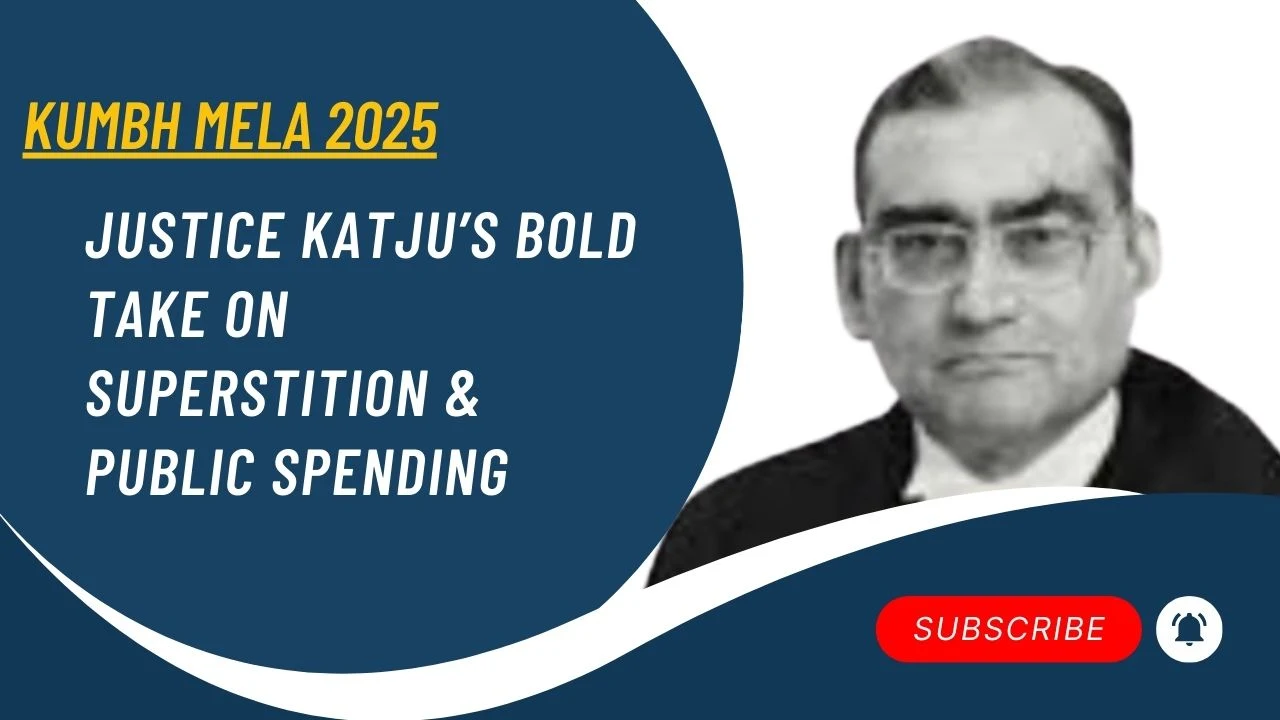Kumbh Mela 2025 in Prayagraj: Religious Freedom, Superstition, and Public Funding Debate
What is Kumbh Mela 2025? A Grand Religious Congregation in Prayagraj
- The Financial Debate: Should Public Funds Support Religious Events?
- Kumbh Mela and Superstition: A Critique of Faith-Based Practices
- Justice Katju's Viewpoint: Religious Freedom vs. Scientific Temper
- Article 51A(h): Is Government Support a Constitutional Violation?
Explore the grand Kumbh Mela 2025 in Prayagraj, attracting
millions globally for spiritual cleansing at the Sangam. Justice Markandey Katju
questions public funding for religious events, raising concerns about
secularism, superstition, and Article 51A(h) of the Indian Constitution.
 |
| Justice Katju’s Bold Take on Superstition & Public Spending |
Kumbh Mela in Prayag
By Justice Markandey Katju
The Kumbh Mela ( a religious congregation of Hindus ) is
commencing in Prayag ( Allahabad ) in UP, India from 13th January this year and
will last till 26th February. It is estimated that 400 million people, mostly
Hindus, from all over the world will come on this occasion.
Maha Kumbh Mela 2025: When will it start? Check dates of Shahi snan, history, significance and more
Maha Kumbh Mela 2025: Airfares and hotel tariffs soar asPrayagraj gears up for mega festival
Though an atheist, I am a strong supporter of religious freedom. Hence I have no objection to such congregations.
However, I have an objection to doling out thousands of crores
of rupees by the Central and State Government on such gatherings
Why should such huge amount be taken from the public coffers for such a religious event, money which should have been spent on the welfare of our people?
India claims to be a secular country, and that is mentioned
in our Constitution. But what kind of secularism is it when huge sums of public
funds are spent on constructing a Ram Temple in Ayodhya or on Melas ?
People have a bath in the sangam ( the confluence of the
Ganga and Jamuna rivers in Prayag ) during this event under the belief that
this washes off their sins ( paap) and earns spiritual benefit ( punya).
But is this not sheer superstition and nonsense ? How can having a bath wash off sins ? One is entitled to be foolish and believe in nonsense. But should the
government promote superstitions by financially supporting them ? Is this not violation of Article 51A(h) of
the Indian Constitution which states that it shall be the duty of all citizens
( which would include government authorities) to promote the scientific temper
?
Some people invited me to come to Allahabad on this
occasion. I replied that I have no desire to participate in foolishness and
stupidity.
(Justice Katju is a retired judge of the Supreme Court of
India. These are his personal views.)



